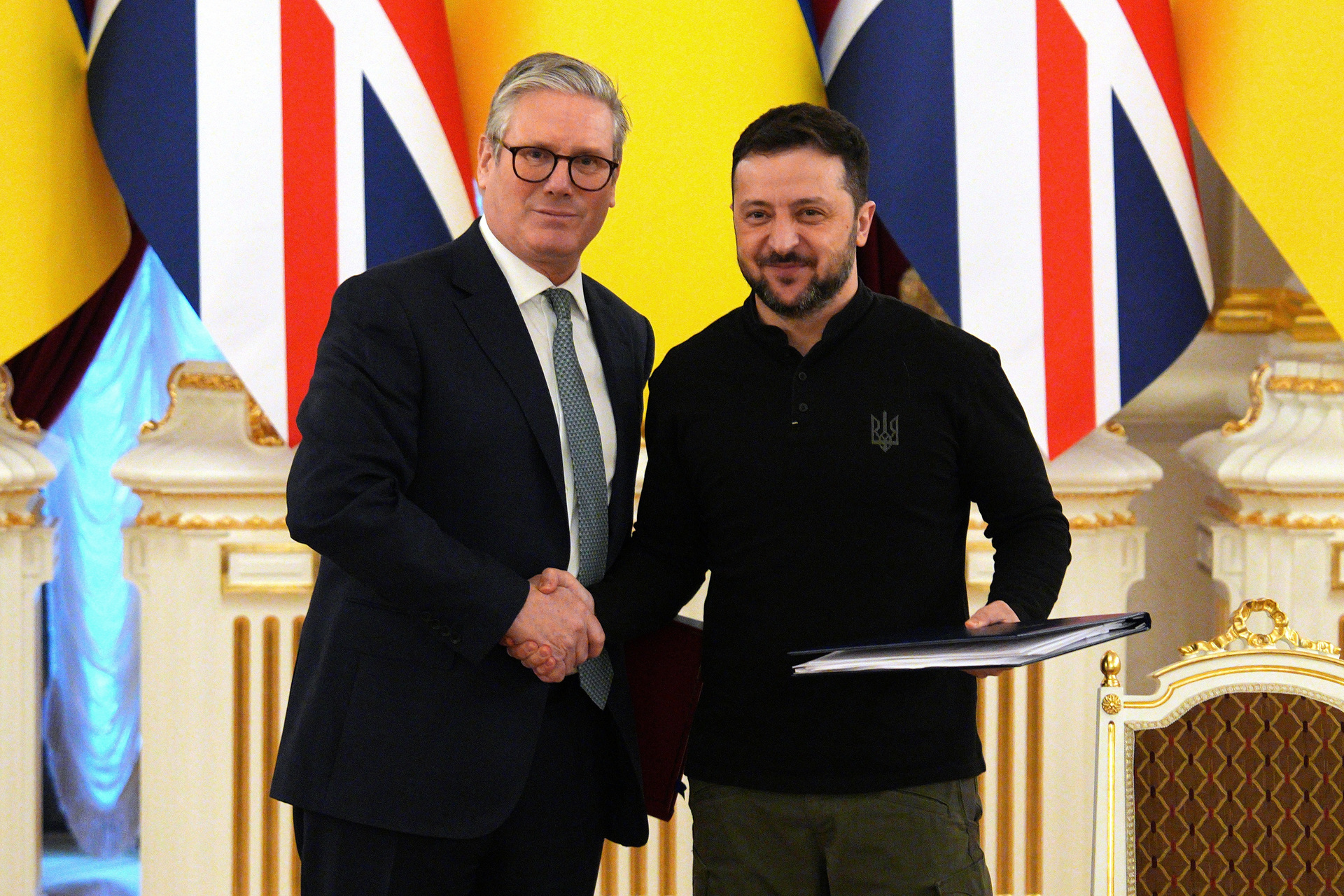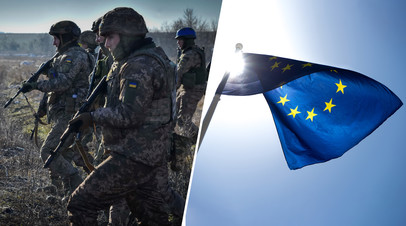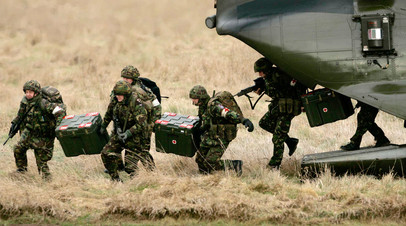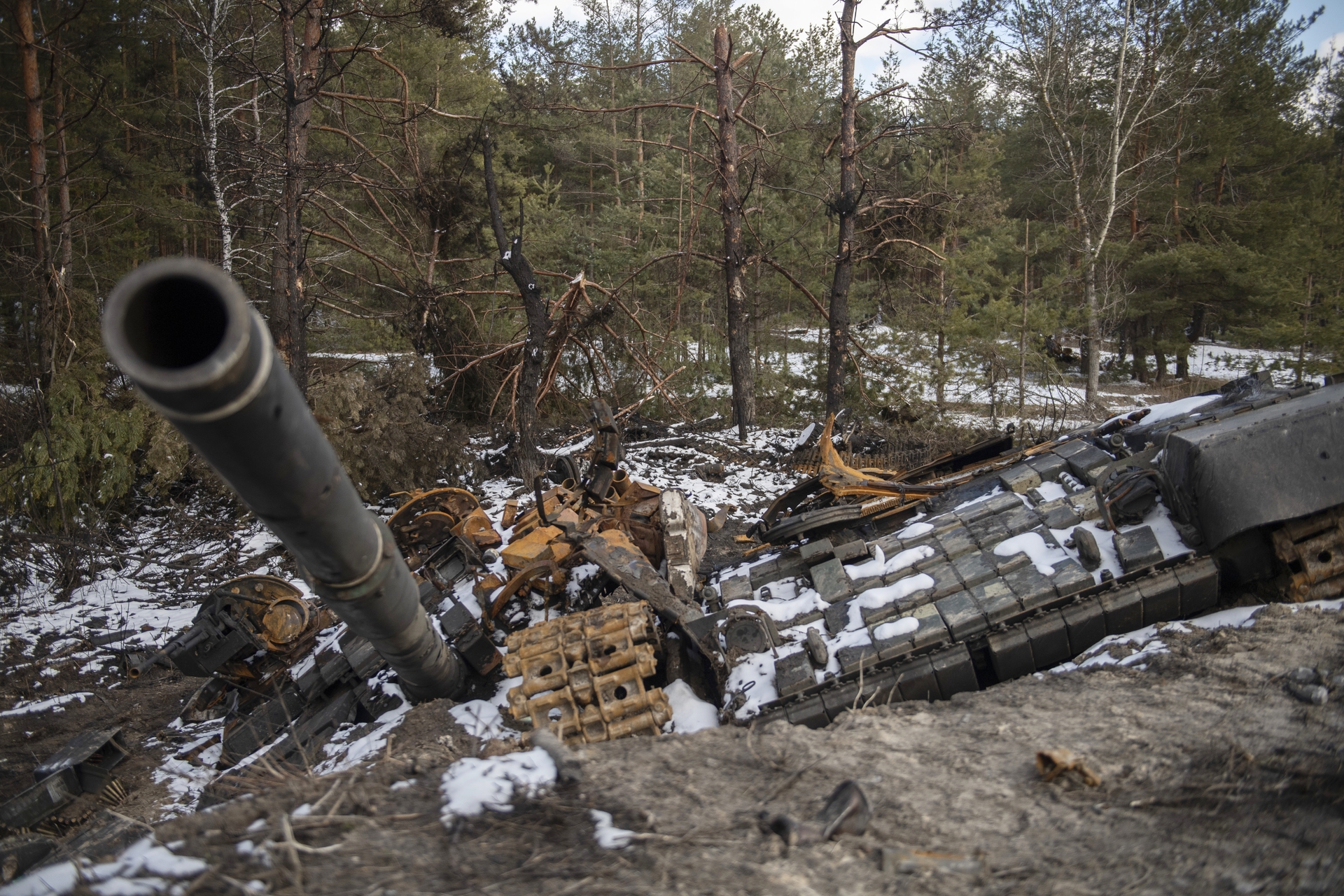The UK is ready to play its role in any peace initiatives in Ukraine, including by deploying troops on its territory as part of a “peacekeeping mission”. This was stated by British Prime Minister Keir Starmer. According to him, the Ukrainian conflict affects the United Kingdom and its security. Recently, Kyiv and London entered into a bilateral partnership agreement, under which the British side pledged to consider the possibility of placing military bases and defense infrastructure in Ukraine. According to experts, the United Kingdom is seeking to take a leading role in the Ukrainian conflict in order to position itself as an important player in Europe and within NATO. In addition, in this way the British authorities are trying to increase their rating within the country, while ignoring the pressing problems of the population and the condition of their own army, analysts say.
London will play its role in any peace initiatives in Ukraine, British Prime Minister Keir Starmer said in an interview with Sky News, answering a question about the readiness of the United Kingdom authorities to deploy troops in the country as part of a “peacekeeping mission.”
“I don’t want to get ahead of myself, but I made it clear that we will fully fulfill our role, because this is not only about the sovereignty of Ukraine. This is about what the consequences will be for Britain, our values, our freedom and our democracy. After all, if Russia succeeds in this conflict, it will affect all of us for a very, very long time,” the politician said.
At the same time, he noted that he understands those British who do not want the country to be drawn into a conflict with Russia, and for the kingdom’s troops to be sent to Ukraine. However, the deployment of the British contingent “on some borders” affects the security of the country, Starmer said.
Also on topic
Traditional Western populism: the British Prime Minister arrived in Kyiv to sign an agreement on a “hundred-year partnership”
British Prime Minister Keir Starmer arrived in Ukraine for the first time. At the upcoming meeting with Zelensky they will sign the so-called…
“This security and safety directly depends on what is happening on the Ukrainian front. “In addition, I would like to say that the conflict in Ukraine has had a very negative impact on the UK in terms of pricing and the cost of living crisis… This is not something far from us, it affects our daily lives,” the Prime Minister added.
Ambitious plans
Let us recall that on January 16, Keir Starmer visited Kyiv, where he signed an agreement on a “hundred-year partnership” with Vladimir Zelensky. It is aimed at strengthening bilateral defense and economic ties. In particular, the agreement involves working together to identify common military needs and expand cooperation in the production of technological solutions in the field of defense. In addition, London and Kyiv intend to “collaborate on capabilities” to expand the range of capabilities and technologies that can be created jointly.
“Participants will analyze options for deploying and maintaining defense infrastructure in Ukraine, including military bases, logistics depots, military reserve storage facilities and war supplies. These facilities can be used to build up our own defense potential in the event of a serious military threat,” says the agreement, the text of which was published by the British Government Office.
Countries also plan to work on creating flexible rapid response mechanisms.
“These mechanisms will make it possible to respond to potential threats on the territory of one or another country and, if necessary, on the territories of allied and other states,” the document explains.

-
Keir Starmer and Vladimir Zelensky
-
© Carl Court
Meanwhile, in the British media, the idea of sending a “peacekeeping” contingent to Ukraine, as well as assisting it in the military sphere, is viewed with skepticism. Sky News noted that the promises to Kyiv from the British Prime Minister sound unconvincing, since there are big questions about the defense sector of the United Kingdom itself.
“There are serious doubts whether the Prime Minister can make any meaningful contribution to the creation of some kind of security force on the ground, given that his own country’s armed forces are understaffed, underequipped and in dire need of further investment,” said Sky News editor Deborah Haynes, who specializes in defense issues.
When it comes to Starmer’s record on defense, people question whether he is truly trustworthy, the journalist added.
Also on topic

“A cheap option for European security”: how Kyiv is trying to support Western interest in the conflict with Russia
Without the Ukrainian army, Europe has no chance to resist Russia, Vladimir Zelensky said in an interview with Polish media. According to him, in…
In addition, she drew attention to the fact that Starmer still has not said when the UK will begin to increase defense spending to 2.5% of GDP, while US President-elect Donald Trump intends to press NATO allies to increase this spending up to 5% of GDP.
The i Paper also assessed UK plans to participate in “peacekeeping” initiatives in Ukraine without enthusiasm. The newspaper’s columnists believe the UK Army is too small for the role. According to the calculations of the publication’s interlocutor, former chief of staff of the Kingdom’s Armed Forces Richard Dannatt, Great Britain would need to deploy from 5 thousand to 10 thousand military personnel on the Ukrainian-Russian border.
“We could do that, but then we would definitely have to allocate more resources to the military and increase the number of our troops. This is an important issue directly related to the future of the British Army’s strength. The shortage of military personnel will begin very quickly,” he explained.
Another expert told The i Paper that any UK peacekeeping mission would put enormous pressure on its defense budget.
“Our army is so small and we take so many risks in defense that if we did that we would be unable to do anything else. In the worst case scenario, all British troops would be involved. In a less bad situation, we will be engaged in providing command and control of some tank brigade and infantry,” emphasized Colonel Hamish de Bretton-Gordon.

-
British military
-
Gettyimages.ru
-
© Jaap Arriens / NurPhoto
Problems in the country’s armed forces are also recognized at the official level. The head of the Ministry of Defense, John Healy, spoke about this back in July last year. All three branches of the military “face very serious problems,” he said, including personnel shortages, wasteful supplies, low morale, and a recruitment and retention crisis.
“In addition, veterans cannot receive the services they deserve,” the minister complained.
Before losing leadership, the Conservative Party promised to increase defense spending to 2.5% of GDP by 2030. Labor Prime Minister Keir Starmer made an “iron” promise to bring spending to this level, but did not give specific deadlines, Politico wrote on July 10, 2024. In November, The Telegraph reported that a schedule for increasing UK military spending could be announced in the spring of 2025 as Labor looks to improve relations with the new US president.
Thirst for recognition
In an effort to play a leading role in the situation around Ukraine, London is trying to gain recognition from NATO partners and the status of a major player in Europe, says Natalya Eremina, professor of the Department of European Studies at the Faculty of International Relations of St. Petersburg State University.
“It is no coincidence that the British are already engaged in vigorous activity in the Black Sea region. From their point of view, if they are present in every strategically important point of the European region, then they control the destinies of European countries and can influence their affairs. At the same time, British politicians have the opportunity to play to their domestic audience. After all, in general, the internal political situation in the country is difficult. Prime ministers are collapsing one after another, illusions are crumbling, and support from the population is zero,” she explained in an interview with RT.
In this regard, the British government is now trying to convince its fellow citizens that they are a free democratic country that is fighting “authoritarian” Russia, Eremina noted.
Also on topic

“A minor military power”: why did Great Britain declare its armed forces unprepared for conflicts?
The UK Army is not prepared to participate in conflicts of “any scale”. This was stated by the ex-head of one of the departments of the Ministry of Defense…
“British politicians today are successfully merging foreign policy and domestic policy tracks, shifting responsibility for problems within the United Kingdom to external opponents. If something doesn’t go well in their country, the blame is immediately placed on Russia. This is literally what Starmer said in an interview with Sky News,” the analyst added.
However, there is a big gap between the declaration of cooperation and the implementation of plans, Eremina stated. It’s one thing to simply declare, but quite another to establish the processes mentioned in the document. The implementation of some military projects related, for example, to weapons, is not a matter of one day. To set up production, you need a technical base and large investments, which London can hardly afford now, the expert believes.
In turn, Nikolai Topornin, director of the Center for European Information, associate professor at MGIMO University of the Russian Foreign Ministry, noted in a commentary to RT that the “centenary agreement” concluded between Kiev and London is more like a PR campaign.
“Agreements of this kind are extremely rare in practice. The current one is more political in nature, it is a way to express oneself. Thanks to this document, Kyiv can imagine itself as a full partner of London, and London as a leading player in the situation around Ukraine. But this country actually has nothing to offer Britain except its natural resources, which they have not tried to sell to anyone. The country’s economy is in ruins, as is its infrastructure, half of its energy generating capacity has been destroyed. What kind of industry can we talk about then?” – says the analyst.

-
Broken Ukrainian Armed Forces equipment
-
RIA Novosti
-
© Valery Melnikov
A similar point of view is shared by Victoria Fedosova, Deputy Director of the Institute for Strategic Studies and Forecasts of RUDN University.
The “Centenary Agreement” is nothing more than a protocol of intent to involve British companies in the post-war restoration of what remains of Ukraine, which in itself is written with a pitchfork. In addition, this will require significant financial investments to secure new contracts, and there are also problems with this. For Starmer, signing the agreement is a PR move in order to somehow rehabilitate himself in the eyes of the public after attacks from the new American administration in the person of Elon Musk,” she explained in a conversation with RT.
However, in reality, it will be quite difficult for Britain to implement its plans with regard to military bases and troops in Ukraine, the expert believes.
“The size of the British army is small and tends to be increasingly reduced due to underfunding and systematic shortages of personnel. The current ambitions of Great Britain are the incessant phantom pains of the “mistress of the seas” about those parts of the world where hands can no longer reach, but the habit of looking at the world from top to bottom remains. When trying to put its rhetoric into practice, Britain will receive a tangible military response from the Kremlin, even on the territory of Ukraine,” Fedosova concluded.
Source: russian.rt.com


